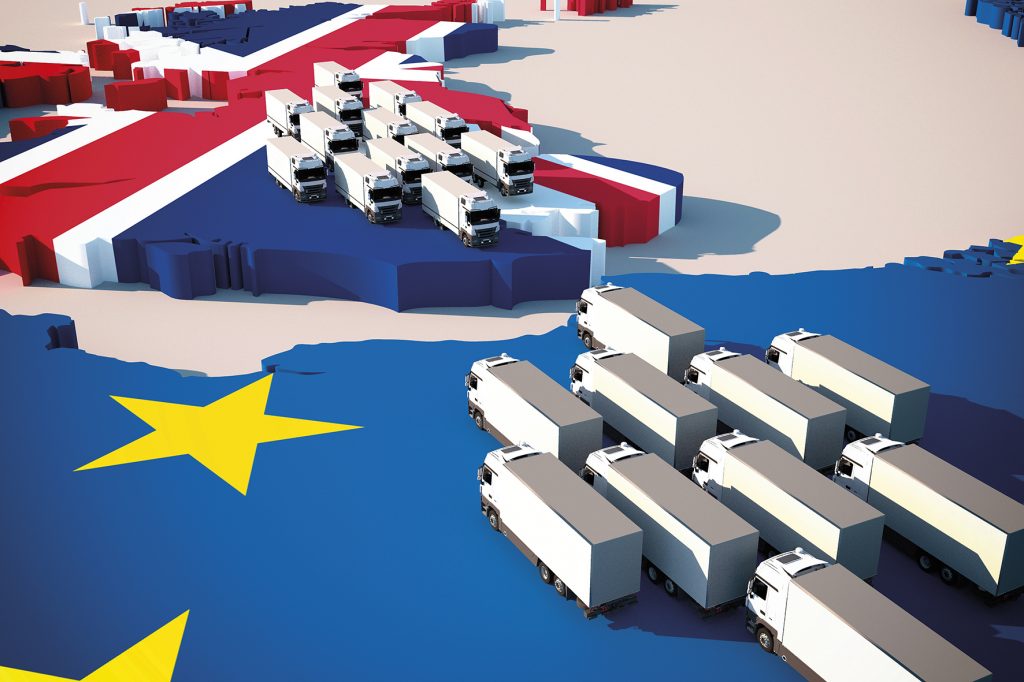Brexit: Your Customs Guide
25th November 2020

The Brexit clock is ticking down to zero. Is your business ready? Customs software company Descartes experts explain what you need to know and how to prepare, regardless of any UK/EU trade deal.
In theory, 2020 should have been the year of ‘Brexit Preparation’, allowing time for businesses that trade with the EU to familiarise themselves with the new customs requirements and plan accordingly. In reality, 2020 has been a year like no other, filled with mass disruption and uncertainty caused by the pandemic. To say that businesses had been distracted would be a significant understatement.
Yet, the final Brexit deadline is approaching fast, and the lack of preparedness is concerning. Andrew Tavener, Head of Marketing at Descartes, urges businesses to act now. “While the supply chain disruptions caused by COVID-19 have been devastating for many, the customs complexity post-Brexit could bring far greater disruption than we have just experienced. Action must be taken – fast,” he urges. Ready for Brexit? Independent research undertaken by Descartes clearly illustrates this point:
- – Just 18% of UK businesses believe they are prepared for a ‘no deal’ Brexit.
– COVID-19 has disrupted two thirds of businesses’ Brexit preparations.
– 67% of large firms are very or extremely concerned about the impact of Brexit causing longer delays in their supply chain.
– 40% are concerned about customs declarations impacting their business post-Brexit.
The Brexit transition period ends on December 31st. So it’s easy to see why the lack of certainty surrounding the deal/no-deal between the EU and UK is undermining business clarity. In the autumn 2020 Descartes research 52% thought a UK-EU trade deal was unlikely to be achieved in 2020, yet just 18% were prepared for a ‘no deal’ exit from the EU. The biggest concern in terms of Brexit’s impact on cross border trade is delays to the supply chain (45%). 67% of larger firms are very or extremely concerned about longer delays in their supply chain. Over two thirds (68%) of
healthcare supply chain managers are also concerned about supply chain delays. Tariff payments (40%) and customs declarations (40%) are the next highest concerns.
These illustrate how those organisations and supply chain managers that already have experience of customs declarations have far greater concern about Brexit implications compared to those that have yet to discover the complexity of customs processes. In particular, with consumer behaviour shifting significantly during the pandemic, it is this inexperience that will mean many smaller businesses that rely on ecommerce trading with the EU are likely to get caught out.
Compliance complexity
With or without a deal or no-deal Brexit arrangement, customs declarations will still be required. Even those companies that opt – and are able – to defer import customs declarations for six months, will still be required to keep detailed records of imports. Customs declarations will be mandatory, even for smaller organisations. No longer will they be able to sell goods without
paperwork or post goods abroad as if they were in the UK.
To remain compliant with regulations, companies can either complete declarations in house, or use a customs broker or freight forwarder to handle the process on their behalf. However, using an intermediary could be challenging with the anticipated increase in demand as there are not enough third-party providers to meet demand – Government figures suggest that British companies trading with Europe will have to fill in an extra 215 million customs declarations a year post Brexit.
Businesses do have the option to file directly with HMRC – but those unfamiliar with customs processes may not be confident enough to ensure that the requirements are being carried out to the letter. The complexity can be overwhelming – can they check the requirement for licences for hazardous goods? File the right documentation to ensure no delays at the border? Check the right commodity codes are used? And what about taking advantage of customs authorisations, including Inward Processing, Customs Warehousing, Transit and Customs Freight Simplified Procedures
that could simplify the paperwork requirements for importers trading heavily with the EU or moving goods through multiple territories?
Another element that businesses will have to become familiar with is security filings. While air and sea transport operators will be familiar with security filings, it has not been applicable for road transport within the EU. However, post-Brexit, security filings will be a mandatory requirement for all UK imports and exports, although UK imports will be deferred for 6 months after the Brexit deadline. Unlike customs declarations, which can be submitted when items have already arrived in the UK in a bonded warehouse, security filings are required to be submitted at least two hours before the goods are due to arrive in the UK when transported by road. And if the goods are being transported through the Channel Tunnel by Eurotunnel, a declaration must be submitted at least
one hour before check-in at Coquelles. Read the rest of the article here:

